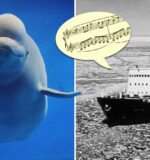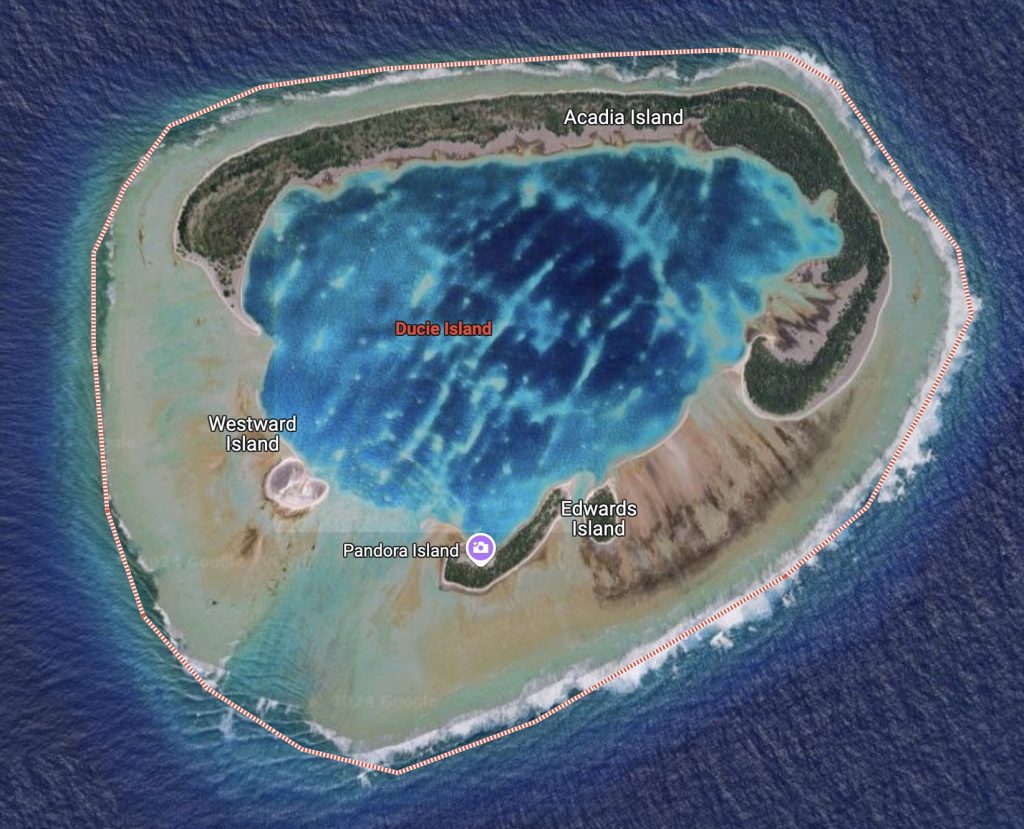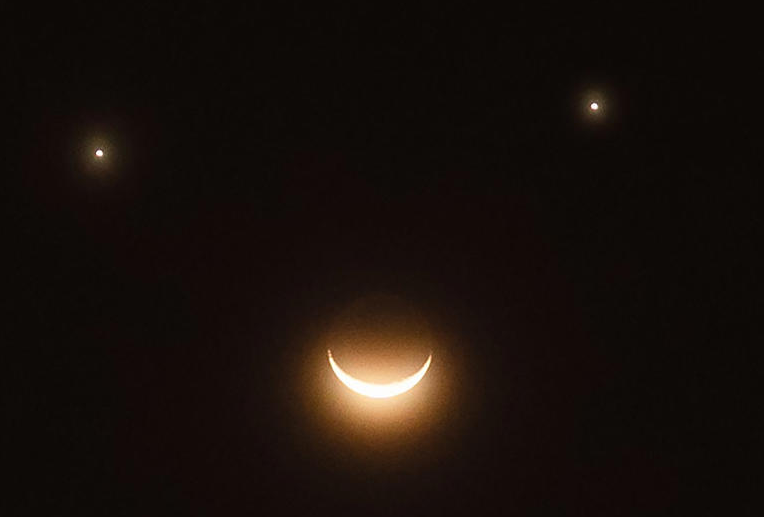The Moskva was the largest and most powerful non-nuclear icebreaker at her time of delivery. She got some international attention in 1985 when she herded around 2000 ice-entrapped belugas back to the open sea … by playing classical music. Yes, you read that right!

What is an icebreaker?
An icebreaker is a class of ships that can break the thickest ice and easily travel where no other ships can, in higher latitudes, close to the Arctic. Icebreakers clear paths by pushing straight into frozen-over water or pack ice. The ice usually breaks without a noticeable change in the vessel’s trim. When the ice is very thick, the ship can drive its bow onto the ice and break it under the ship’s weight. Icebreakers were used in early polar exploration missions and are still used today to clear icy trading routes during the cold Arctic winter and in polar research expeditions.
Moskva, a fierce Russian ship

After receiving three icebreakers (1954-1956), the Soviet minister of commerce asked a Finnish company named Wärtsilä in Finland to build even larger and stronger ships. One of these ships named Moskva was designed in 1956 and featured one of the most potent diesel-electric power plant ever installed on a vessel at the time. Moskva is the Russian name for Moscow, the capital of the Soviet Union.
Moskva was delivered in 1960 and was in service until 1992, when she was broken up and sold for parts. She weighed more than 13000 tonnes and was 122 meters (400 feet) long. The icebreaker escorted hundreds of ships on the North Sea trade route.
“Operation Beluga”
In December 1984, a hunter spotted a herd of up to 3,000 beluga whales in the Chukchi Peninsula‘s ice-covered coastal waters. While happy at first – since belugas are nutritious and appreciated – the hunter and his group noticed something was wrong. The weather had created a 4m thick ice pack that had trapped the whales. Crossing the extended icy area in one breath was impossible, and the whales were left in their small breathing pools, waiting for a miracle to break the ice and free them.

When locals heard about the whales, they quickly came to help by feeding them frozen fish and digging the ice to make sure the whales had enough room to breathe. But the winter is harsh in North-Eastern Russia, and the whales would soon die under the thick ice pack.
In early February 1985, Russia called Moskva in to break a channel through the ice pack and free the trapped belugas. Moskva raced against time and dropping temperatures to reach the whales before they ran out of breathing pools or starved to death. Upon arrival to the ice pack, the ice was so thick that the captain called the mission off. However, after dozens of whales started to perish, Moskva loaded on a full tank of fuel and plunged into the ice to rescue them. While the icebreaker was working to open a channel for the whales to escape, helicopters were dropping fresh fish above their breathing holes to feed them.
After a couple of days, Moskva and its crew finally reached the whales. However, the belugas were weak and afraid of the massive 400 feet-long ship and its propellers. No one knows how to speak beluga; so the Moskva slowly opened larger pools for the animals to breathe, feed, rest, and relax a bit. Yet, they still refused to follow the ship in the canal back to the open ocean. What happened next sounds unreal …
Music is the universal language
One person on the vessel recalled that marine mammals react to music. And so music began to pour off the top deck. The crew played all kinds of music from pop to classical. After multiple experiments, the entrapped belugas started to react to classical music and approached the icebreaker.
Using classical music, Moskva slowly herded the pod back to the open sea. Captain Kovalenko reported by radio to his headquarters: “Our tactic is this: We back up, then advance again into the ice, make a passage, and wait. We repeat this several times. The belugas start to ‘understand’ our intentions and follow the icebreaker. Thus we move kilometer by kilometer”. The operation took weeks, but by the end of February 1985, an estimated 2000 whales reached the ocean. Whether they got an ear-worm from all this classical music remains unknown to this day.
Operation beluga cost Russia about $80,000 (around $200K today).








 Photographer Finds Locations Of 1960s Postcards To See How They Look Today, And The Difference Is Unbelievable
Photographer Finds Locations Of 1960s Postcards To See How They Look Today, And The Difference Is Unbelievable  Hij zet 3 IKEA kastjes tegen elkaar aan en maakt dit voor zijn vrouw…Wat een gaaf resultaat!!
Hij zet 3 IKEA kastjes tegen elkaar aan en maakt dit voor zijn vrouw…Wat een gaaf resultaat!!  Scientists Discover 512-Year-Old Shark, Which Would Be The Oldest Living Vertebrate On The Planet
Scientists Discover 512-Year-Old Shark, Which Would Be The Oldest Living Vertebrate On The Planet  Hus til salg er kun 22 kvadratmeter – men vent til du ser det indvendigt
Hus til salg er kun 22 kvadratmeter – men vent til du ser det indvendigt  Superknepet – så blir snuskiga ugnsformen som ny igen!
Superknepet – så blir snuskiga ugnsformen som ny igen!  Meteorite That Recently Fell in Somalia Turns Out to Contain Two Minerals Never Before Seen on Earth
Meteorite That Recently Fell in Somalia Turns Out to Contain Two Minerals Never Before Seen on Earth  Nearly Frozen Waves Captured On Camera By Nantucket Photographer
Nearly Frozen Waves Captured On Camera By Nantucket Photographer  It’s Official: Astronomers Have Discovered another Earth
It’s Official: Astronomers Have Discovered another Earth 